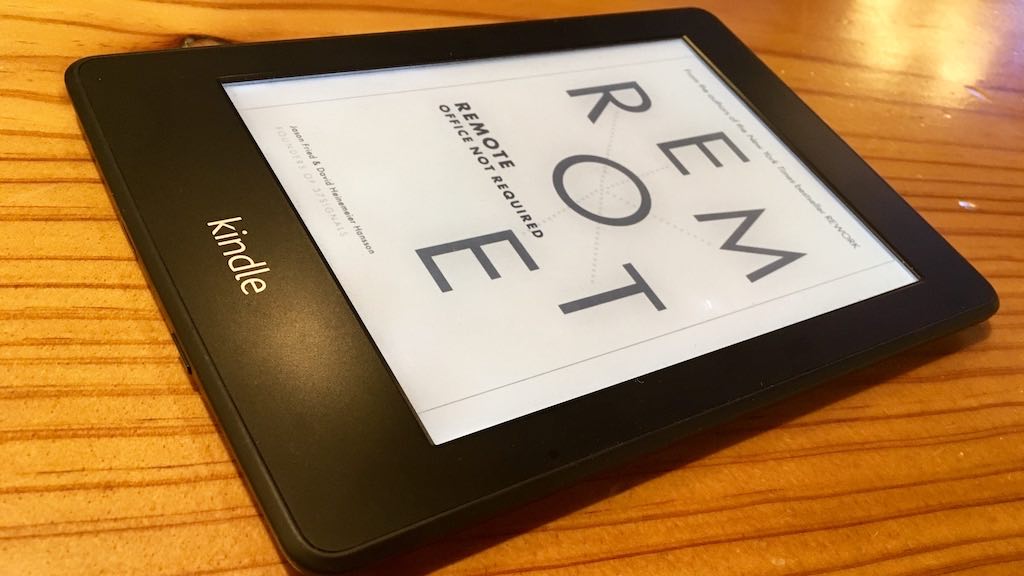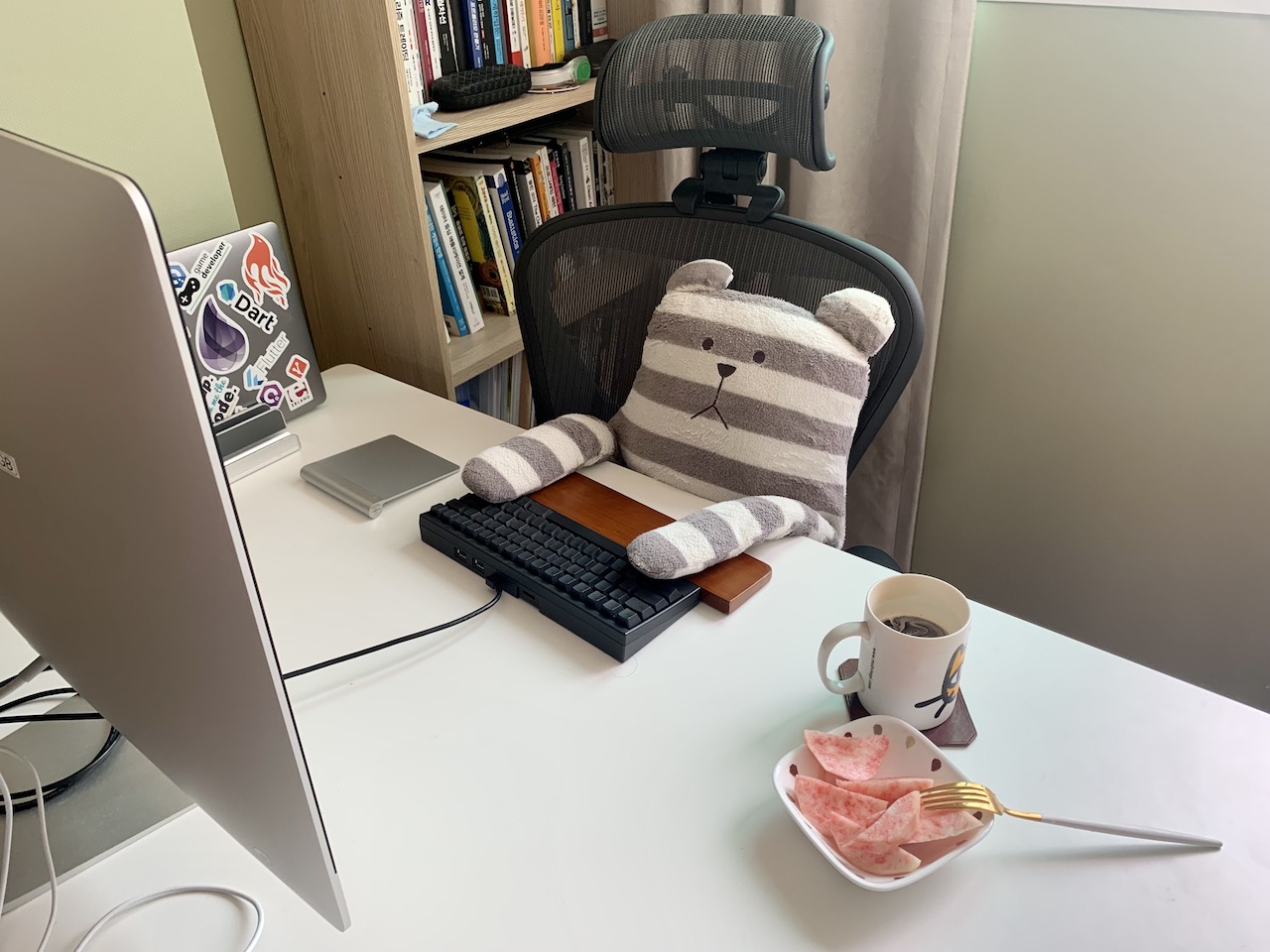Remote: Office Not Required (Jason Fried, 2013) 독후감
37signals 책. 똑바로 일하라 (Rework)를 재미있게 읽은 터라 기대됐다.
대만족. 정말 재미있게 읽었다. 37signals가 책을 쓰면 ’~인 것 같아요’가 없다. 경험으로 얻은 지식과 경험으로 자기주장을 한다. 난 이게 정말 마음에 든다. 읽는 사람이 알아서 판단하면 된다.
난 현재 출근하는데 1시간 10분 정도 쓴다. 원격 근무(remote work)를 하지 않는다. 5년 안에 내가 원격 근무를 할 기회가 있을까? 힘들 것 같다. 이사해서 출근 시간이 줄 수는 있겠지만. 이런데 원격 근무에 관한 이 책이 도움됐을까? 참 좋은데. 하면 참 좋을 텐데. 마냥 부러워하다 끝나는 책일까?
아니다. 도움이 됐다. 원격 근무를 지탱하는 비동기(asynchronous)로 일하기에 대해 다시 생각해볼 수 있었다. 사무실에서 일한다고 비동기로 일하는 법을 몰라도 되는 건 아니다. redmine, wiki, gerrit 등 작업 효율을 높여준다는 툴은 모두 다 비동기를 기반으로 하고 있다. email을 빼먹을 뻔했네. 전통적인 비동기 툴이 되겠다.
Remote work pulls back the curtain and exposes what was always the case, but not always appreciated or apparent: great remote workers are simply great workers.
동감. 원격 근무를 잘하는 사람이 부분집합. 경력 대부분을 사무실 근무를 한 내겐 차 떼고 포 떼고 장기두는 느낌이다.
Being a good writer is an essential part of being a good remote worker. When most arguments are settled over email or chat or discussion boards, you’d better show up equipped for the task.
원격 근무라고 해서 채팅과 화상 미팅이 아예 배제되는 건 아니다. 다만 귀해질 뿐. 모르는 거 있으면 자리로 가서 물어볼 수단이 사라진다. 글쓰기가 무엇보다 중요해진다. 못하면 기회조차 없을 수 있는 필수 요소이다. 책에서 추천하는 책은 On Writing Well, The Elements of Style, Revising Prose.
The new luxury is to shed the shackles of deferred living - to pursue your passions now, while you’re still working.
은퇴하면 마음껏 돌아다니고 싶다. 못 가본 멋진 나라도 가보고. 그런데 이걸 왜 미루나? 원격 근무를 하면 일하면서 지금 당장 할 수 있는데 말이다. 가장 자극을 많이 받았던 문장.
원격 근무에 대한 궁금증도 풀 수 있었고 자극도 많이 받았다. 원격 근무 기회가 있을지 모르겠지만, 비동기로 일하는 능력은 사무실에서 근무하더라도 꼭 필요하다.
기억에 남는 문장
- The future is already here - it’s just not evenly distributed. - WILLIAM GIBSON
- If you ask people where they go when they really need to get work done, very few will respond “the office.” If they do say the office, they’ll include a qualifier such as ’super early in the morning before anyone gets in“ or ”I stay late at night after everyone’s left“ or ”I sneak in on the weekend.“
- The ability to be alone with your thoughts is, in fact, one of the key advantages of working remotely.
- long commutes make you fat, stressed, and miserable. Even short commutes stab at your happiness.
- That’s 1.5 hours a day, 7.5 hours per week, or somewhere between 300 and 400 hours per year, give or take holidays and vacation. Four hundred hours is exactly the amount of programmer time we spent building Basecamp, our most popular product.
- The big transition with a distributed workforce is going from synchronous to asynchronous collaboration.
- The luxury privilege of the next twenty years will be to leave the city. Not as its leashed servant in a suburb, but to wherever one wants.
- The new luxury is the luxury of freedom and time. Once you’ve had a taste of that life, no corner office or fancy chef will be able to drag you back.
- Cabin fever is real, and remote workers are more susceptible to it than those forced into an office. Fortunately, it’s an easy problem to address. Remote work doesn’t mean being chained to your home office desk.
- The best way we’ve found to accurately judge work is to hire the person to do a little work before we take the plunge and hire them to do a lot of work. Call it “pre-hiring.”
- We don’t believe in asking people to solve puzzles. Solving real problems is a lot more interesting and enlightening.
- Would be remote workers and managers have a lot to learn from how the open source software movement has conquered the commercial giants over the past decades. It’s a triumph of asynchronous collaboration and communication like few the world has ever seen.
- If you’ve read about remote-work failures in the press, you might think that the major risk in setting your people free is that they’ll turn into lazy, unproductive slackers. In reality, it’s overwork, not underwork, that’s the real enemy in a successful remote-working environment.
- When there’s a complicated matter to discuss, one requiring a lot of interaction to sort through, few things beat a face-to-face meeting. However, when such meetings occur all the time, they begin to lose their value.
- The scarcity of such face time in remote working situations makes it seem that much more valuable. And as a result, something interesting happens: people don’t waste the time. An awareness of scarcity makes them use it wisely.
- divide the day into chunks like Catch-up, Collaboration, and Serious Work.
- Remote isn’t binary. It’s not here or there, this or that. In fact, for many, the hybrid approach is the right place to start.
- working remotely doesn’t have to mean working from home
- There are two fundamental ways not to be ignored at work. One is to make noise. The other is to make progress, to do exceptional work. Fortunately for remote workers, “the work” is the measure that matters.
- In thirty years’ time, as technology moves forward even further, people are going to look back and wonder why offices ever existed. - RICHARD BRANSON, FOUNDER OF VIRGIN GROUP
Update 표지 사진 교체


